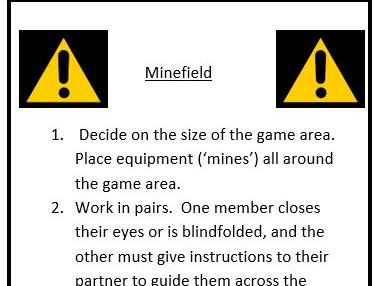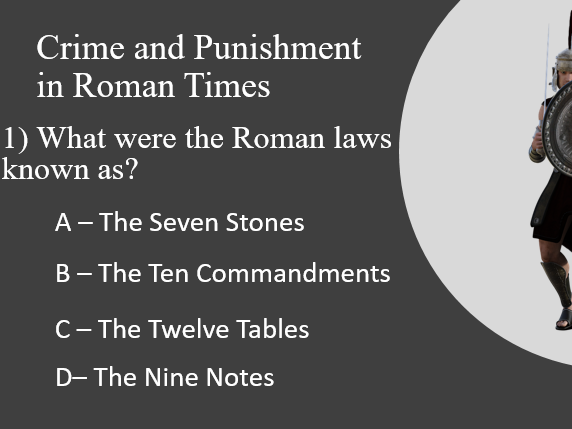75Uploads
14k+Views
1k+Downloads
All resources

French colours
Can be used as an assessment or activity to learn about French colours. Children read simple sentences and either colour the pictures to match or write the English translation.

Dicey spellings: activity sheet to learn spellings.
For use by all pupils including SEN. Choose a word to learn (depending on the child you can use the common exception words list for Year Two or the 3/4 or 5/6 spelling lists). Roll the dice to determine what to do with the target word. The multi-sensory approach is particularly good for dyslexic students. Designed to be used as an independent activity.

Team building games
Six team building games. Good for PSHE lessons, instruction writing and the beginning and end of term. Includes ideas for extension. They are designed to be read by children as well as adults.

SEN - target tracking IEP
This is a blank IEP grid designed to track targets and areas of need over time. By having three consecutive targets on the same sheet, you are better able to check progress. The format allows space to record pupil and parent voice.

Word Wall - SEN resource for teaching key words
Can be laminated or photocopied. Choose the key words you want the child to learn. Write randomly across the bricks. Make sure you include at least one that the child is already confident with. If the child is confident, they can read the words independently from the start, or with less confident children, the adult can read first, then child and adult together, before the child reads independently. Use frequently to practise SEN targets.

Sound Stars: SEN phonics practise sheet
A sheet to be laminated or photocopied. Use to practise target letters or graphemes. Choose three or four letters/graphemes, at least one of which the child is already confident with. Write the sounds in random order in each of the stars. Depending on the confidence of the child, they can either read independently from the start and improve their scores, or the adult can read it first, then adult and child read together before finally the child reads independently. Useful for working towards personal IEP targets.

Writing Editing Bingo Card
Can be double-sided and laminated to be used throughout the school year. This is a two page guide to show children what we are looking for when we assess their writing at the end of Key Stage Two. It explains and gives examples of each feature. Can be used for children to assess their own writing as they go (points for a line, full house etc) or for peer to peer assessment. Good way of getting children to look back at their writing for features that are considered ‘expected’ in Year Six.

Multiplication torture tables - self-checking
Multiplication torture tables. Laminate and fold down the middle. Children have the blank side facing them and 1 or 2 minutes to complete. When the time is up, they open up the card and self-check. Enables a progression in skills from the 2 times table up to multiplying decimals by decimals. 13 cards in total.

Grammar vocab : a game to teach grammar vocab from the National Curriculum
A card game that can be played in small groups or as a whole class. Teams choose to answer a 10, 20 or 30 point question. They are read a definition and have to guess the correct grammatical term. The more points the question is worth, the harder the question. Ideal for plenaries, lesson starters and independent group work. Print and laminate the cards to keep.

SPAG 'only connect' style walls
Five ‘only connect’ style walls. Each contains four groups of four words that are linked by word class or meeting. Suitable for a lesson starter, extension activity or plenary. Answers included. Good for group or partner discussion.

Puberty knowledge organiser and worksheets
A two-page knowledge organiser describing the main changes to the female and male body during puberty. Also included are two further versions of the knowledge organisers: one with blank boxes to fill in, and one with blank boxes plus subheadings.

Sewing Knowledge Organiser
A knowledge organiser to teach running stitch, back stitch and whip stitch. The organiser contains diagrams plus instructions.

Crime and Punishment Quiz
This is a twelve question quiz with two questions relating to crime and punishment in the following eras: Romans, Anglo-Saxons, Tudors, Georgians, Victorians and the present day. Can be used as a pre-topic quiz, an end of topic quiz, or a recap later in the year to check retention.

Monet Knowledge Organiser
A knowledge organiser about the impressionist painter Claude Monet. It includes facts about his painting style and examples of his work. Suitable for all of KS2.

Paul Klee Knowledge Organiser
A knowledge organiser about the Swiss painter Paul Klee. It contains facts about his work and examples of his paintings. It is aimed at KS1.

Gustav Klimt Knowledge Organiser
A knowledge organiser about the Austrian artist Gustav Klimt. Aimed at KS1 or LKS2, it contains facts about his style and examples of his work.

Piet Mondrian Knowledge Organiser
A knowledge organiser about the Dutch abstract artist Piet Mondrian. It contains facts about his art and examples of his work. Suitable for KS1 or KS2.

Wassily Kandinsky Knowledge Organiser
A knowledge organiser about the Russian artist Wassily Kandinsky, a key member of the Bauhaus movement. The organiser features facts about his art and examples of his work. Suitable for KS1 or LKS2.

Pointillism Knowledge Organiser
A knowledge organiser about Pointillism. It contains the key facts about the style and examples of work by Suerat and Signac. Aimed at LKS2.

Writing knowledge organisers
Writing guides for different genre of non-fiction writing: non-chronological reports, recounts, discussion, persuasion, instructions and arguments. They have a checklist of features, a writing skeleton and examples of vocabulary that would be useful to the particular text type. Can be used for display or can be printed as knowledge organisers to help children write in foundation subjects.




















